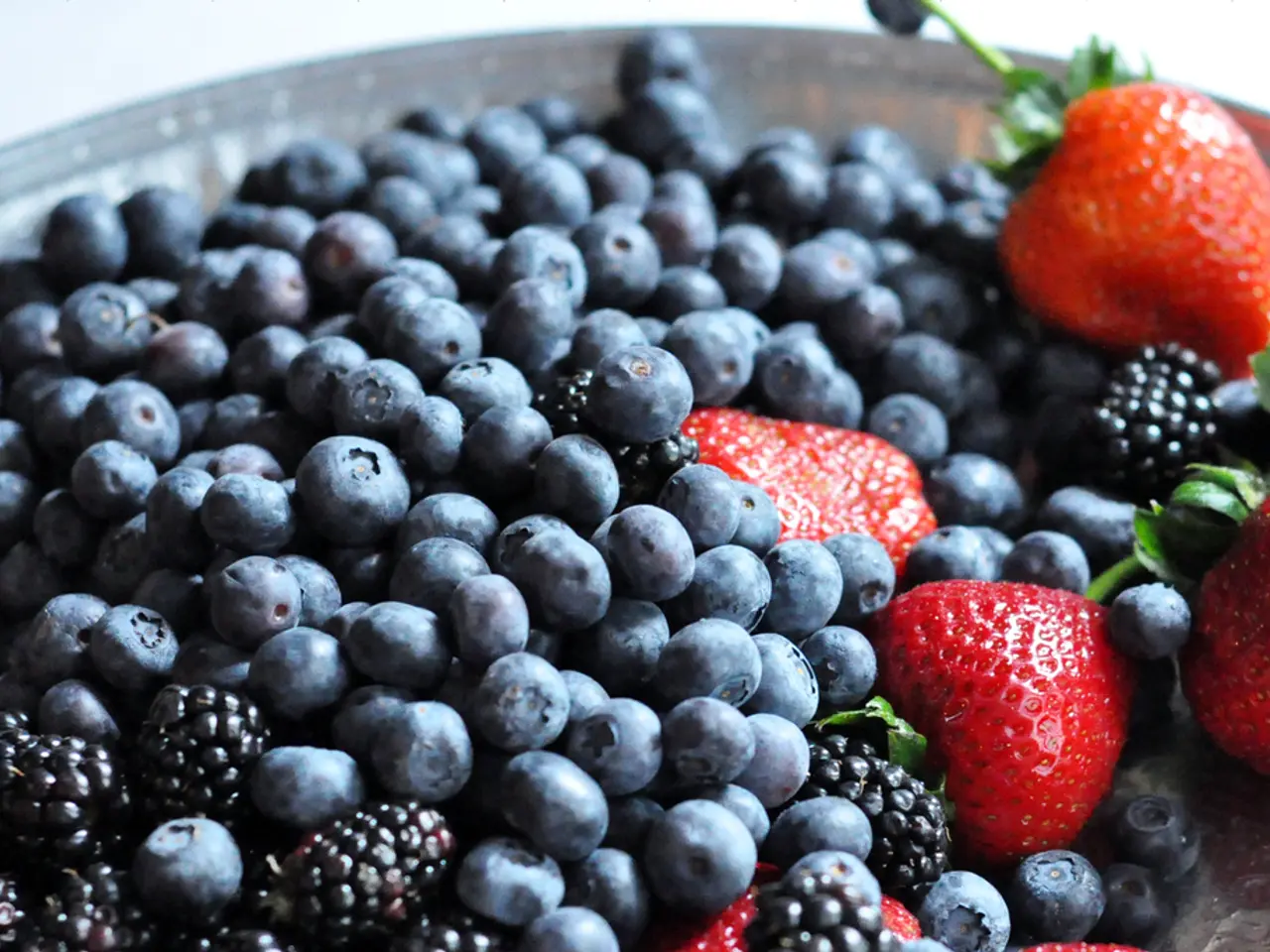Blueberries, Particularly the Wild Variety, May Combat Cognitive Decrease
Cracking the Code on Memory Loss: Wild Blueberries to the Rescue
As we age, the specter of cognitive decline and dementia looms large. According to the Centers for Disease Control and Prevention (CDC), subjective cognitive decline affects 1 in 9 adults over 65, and by 2016, 68% of those with serious cognitive problems were unable to live independently. Finding effective methods to combat this issue is crucial for the elderly community. Enter wild blueberries, the brain-boosting powerhouse that's been turning heads in scientific circles.
Researchers believe that lifestyle changes can slow the deterioration of the brain and its cognitive function. With this in mind, studies have indicated that the Mediterranean diet, rich in fresh produce, fish, wine, and olive oil, is beneficial for cognitive health. However, it's one particular superfood within this diet that's generating a lot of buzz: wild blueberries. Packed with antioxidants and polyphenols, wild blueberries have shown remarkable potential in supporting cognitive function.
Various studies have shown that wild blueberries can reverse age-related neuron decline and increase blood flow to the brain. Given these findings, researchers hypothesized that daily consumption of wild blueberries by older adults experiencing mild cognitive decline would improve processing speed, a critical component of cognitive health.
To test this theory, 296 adults aged 65-80 from a southeastern United States community were recruited. Of these, 133 met the study requirements, having few fruit and vegetable servings and no blueberry allergies. The participants were split into three groups: those with mild cognitive decline, those without cognitive impairments (the reference group), and a control group given a placebo. Throughout the six-month, double-blind, placebo-controlled study at the University of North Carolina Chapel Hill Nutrition Research Institute, participants attended 9 visits, undergoing various cognitive and behavioral assessments, physical activity questionnaires, and providing blood, urine, and dietary information.
The results of the study were undeniably impressive. Participants in the wild blueberry group demonstrated a significant improvement in processing speed compared to the placebo group. Remarkably, their processing speed was restored to the level of the reference group not experiencing cognitive decline. The improvements were most notable in those aged 75-80, and intriguingly, the wild blueberries appeared to offer protection from cognitive fatigue as well.
So, what does this mean for our elderly community? Researchers suggest that consuming polyphenols found in wild blueberries may prove to be an effective tool in combating cognitive decline. As we continue to explore the vast potential of this powerful superfood, we may find ourselves closer than ever to a future where our elderly can maintain their cognitive abilities and continue to lead rich, independent lives.
Sources:
Six-month intervention with wild blueberries improved speed of processing in mild cognitive decline: a double-blind, placebo-controlled, randomized clinical trial.
Wild Blueberries: The Superfood for Cognitive Health.
Subjective Cognitive Decline: A Public Health Concern.
Enrichment Data:
- The researchers' findings highlight the unique benefits of wild blueberries, particularly in helping to combat cognitive decline by reducing oxidative stress, inflammation, and cognitive fatigue in older adults with mild cognitive impairment[1].
- Acute supplementation of flavonoid-rich wild blueberries has been shown to improve executive function, short-term memory, and mood in adults, underlining their potent cognitive-enhancing properties[2].
- The antioxidants found in wild blueberries, combined with a MIND diet, help to reduce oxidative damage linked to cognitive decline and dementia[4][5].
- One study reported a 30% improvement in memory test performance following blueberry juice intake, demonstrating the potential for wild blueberries to support memory-related functions[5].
Thus, a growing body of evidence indicates that wild blueberries can offer marked cognitive benefits, enhancing functions like processing speed, memory, and executive function in older adults with mild cognitive impairment.
- Integrating wild blueberries into a health-and-wellness routine, especially in the context of a healthy diet like the Mediterranean diet, may support mental health and cognitive function.
- The antioxidants and polyphenols in wild blueberries could potentially offer protection against age-related cognitive decline and contribute to maintaining mental health and wellness in older adults.








